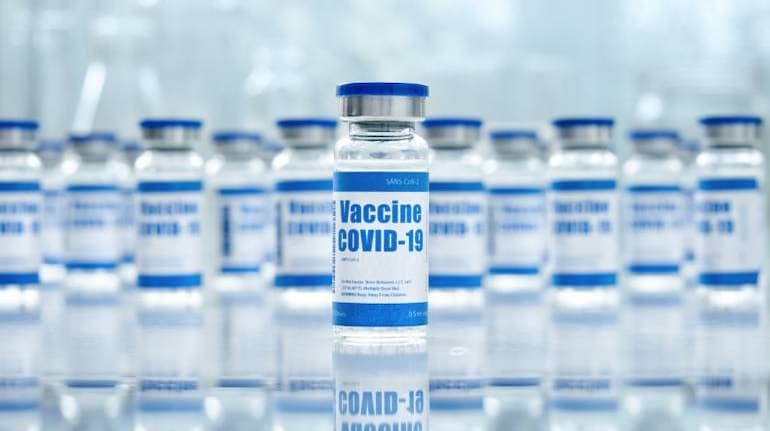



The government has said it has been in talks with all major international vaccine manufacturers, including Pfizer, from mid-2020 for procuring COVID-19 vaccines.
"As soon as Pfizer indicated vaccine availability, the central government and the company are working together for the earliest possible import of the vaccine," the government said in a press release on May 27.
India’s effort to step up vaccination has been hobbled by a shortage, with several states forced to put on hold jabs for the 18-45 age group. Some states launched global tenders for vaccines but haven’t met with much success, with most vaccine makers insisting on dealing with the Union government only.
Multiple rounds of discussions have been held with Pfizer, Johnson & Johnson and Moderna. The government offered all assistance to have them supply or manufacture their vaccines in India, it said.
"However, it is not that their vaccines are available in free supply. We need to understand that buying vaccines internationally is not similar to buying ‘off the shelf’ items. Vaccines are in limited supply globally, and companies have their own priorities, game-plans and compulsions in allocating finite stocks," the government said.
Also read: Pfizer asks India for pre-order, advance payment for COVID-19 vaccines: Report
Vaccine makers also give preference to countries of their origin “just as our own vaccine makers have done unhesitatingly for us", it added.
The government said it was due to its efforts, Sputnik V vaccine trials got accelerated and with timely approval, Russia sent two tranches of vaccines and accomplished tech-transfer to Indian companies that would start manufacturing soon.
"We reiterate our request to all international vaccine makers to come and make in India–for India and for the world," the government said.
Also read: Pfizer says hasn't authorised anyone to import, distribute vaccine in India
Approval of vaccines
"The Central government has proactively eased entry of vaccines approved by US FDA, EMA, UK's MHRA and Japan's PMDA, and WHO's Emergency Use Listing into India in April. These vaccines will not need to undergo prior bridging trials. The provision has now been further amended to waive off the trial requirement altogether for the well-established vaccines manufactured in other countries," the government said.
"No application of any foreign manufacturer for approval is pending with the drugs controller," it added.
Also read: PM Narendra Modi says COVID-19 vaccine absolutely important to defeat pandemic
Ramping up domestic production
The government said it was playing the role of a facilitator to enable more companies to produce vaccines from the early 2020.
"There is only one Indian company (Bharat Biotech) which has the IP (intellectual property). The government has ensured that 3 other companies will start production of Covaxin apart from enhancing Bharat Biotech’s own plants, which have increased from one to four," the government said.
Covaxin production by Bharat Biotech was being increased from under 1 crore doses a month to 10 crore by October. Additionally, the three PSUs will together aim to produce up to 4 crore doses by December.
The government said Serum Institute of India (SII) was ramping up Covishield production from 6.5 crore doses a month to 11 crore doses.
Sputnik V would be manufactured by six companies in coordination with Dr Reddy’s.
"The Union government is supporting efforts of Zydus Cadila, BioE as well Gennova for their respective indigenous vaccines through liberal funding under Covid Suraksha scheme as also the technical support at national laboratories," the government said.
"Development of Bharat Biotech’s single-dose intranasal vaccine is proceeding well with GoI funding, and it could be a game-changer for the world."
The government estimates the production of COVID-19 vaccines to be around 200 crore doses by the end of 2021.
Compulsory licensing
On compulsory licensing, the government said it was not a very attractive option since it was not the ‘formula’ that mattered but active partnership, training of human resources, sourcing of raw materials and highest level bio-safety labs.
"Tech transfer is the key and that remains in the hands of the company that has carried out R&D. In fact, we have gone one step ahead of Compulsory Licensing and are ensuring active partnership between Bharat Biotech and three other entities to enhance production of Covaxin," the government said.
"Similar mechanism is being followed for Sputnik. Think about this: Moderna had said in October 2020 that it will not sue any company which makes its vaccines but still not one company has done it, which shows licensing is the least of the issues. If vaccine-making was so easy, why would even the developed world be so short of vaccine doses?" it said.
Discover the latest Business News, Sensex, and Nifty updates. Obtain Personal Finance insights, tax queries, and expert opinions on Moneycontrol or download the Moneycontrol App to stay updated!
Find the best of Al News in one place, specially curated for you every weekend.
Stay on top of the latest tech trends and biggest startup news.